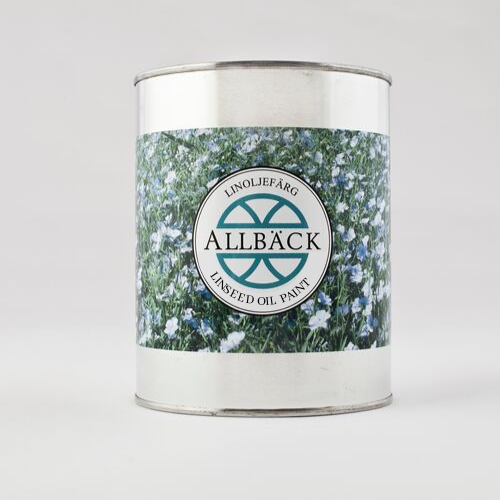Mineral additive for linseed oil paints Zinc Oxide (ZnO)
Mineral additive for linseed oil paints Zinc Oxide (ZnO)
Couldn't load pickup availability
To share
Description
Zinc oxide (ZnO) is a natural mineral widely used not only in the production of natural linseed oil paints but also in cosmetics (such as sunscreens), pharmaceuticals, and many other products.
For exterior projects, we recommend adding ZnO to linseed oil paint in amounts ranging from 10-20% (20% for lighter tones, 10% for darker tones) to provide additional long-term protection against UV radiation.
We also suggest adding ZnO when painting surfaces that will be subject to heavy use—such as floors, tabletops, and cabinets—ensuring an even more durable finish.
Have more questions or concerns?
Feel free to write to us at info@ekokrasas.lv, and we will gladly assist you with advice and recommend the best solution!

- Description
- Delivery
- Painting
Description
Zinc oxide (ZnO) is a natural mineral widely used not only in the production of natural linseed oil paints but also in cosmetics (such as sunscreens), pharmaceuticals, and many other products.
For exterior projects, we recommend adding ZnO to linseed oil paint in amounts ranging from 10-20% (20% for lighter tones, 10% for darker tones) to provide additional long-term protection against UV radiation.
We also suggest adding ZnO when painting surfaces that will be subject to heavy use—such as floors, tabletops, and cabinets—ensuring an even more durable finish.
Have more questions or concerns?
Feel free to write to us at info@ekokrasas.lv, and we will gladly assist you with advice and recommend the best solution!
Delivery Options:
- Omniva Parcel Lockers: Convenient delivery to your selected Omniva locker – only 2.99 EUR.
- Courier Delivery: Direct delivery starting from 5.99 EUR (exact fee depends on order weight and delivery address).
FREE delivery on orders over 100 EUR!
Delivery Time:
Orders are typically delivered within 2-4 business days after payment is received. For orders placed on weekends or holidays, delivery will start on the next business day.
Receiving Your Order:
Please check the condition of the packaging upon delivery. If the package is damaged, you may refuse the item and notify us.
Returns and Exchanges:
You can return items within 14 days of receipt, provided they are unused and the packaging (paint can) remains unopened. Return shipping costs are covered by the buyer unless the item is damaged or incorrect.
Refunds:
Refunds are processed within 14 days after receiving and inspecting the returned item.
For more details on delivery and returns, please see our full policy here.
